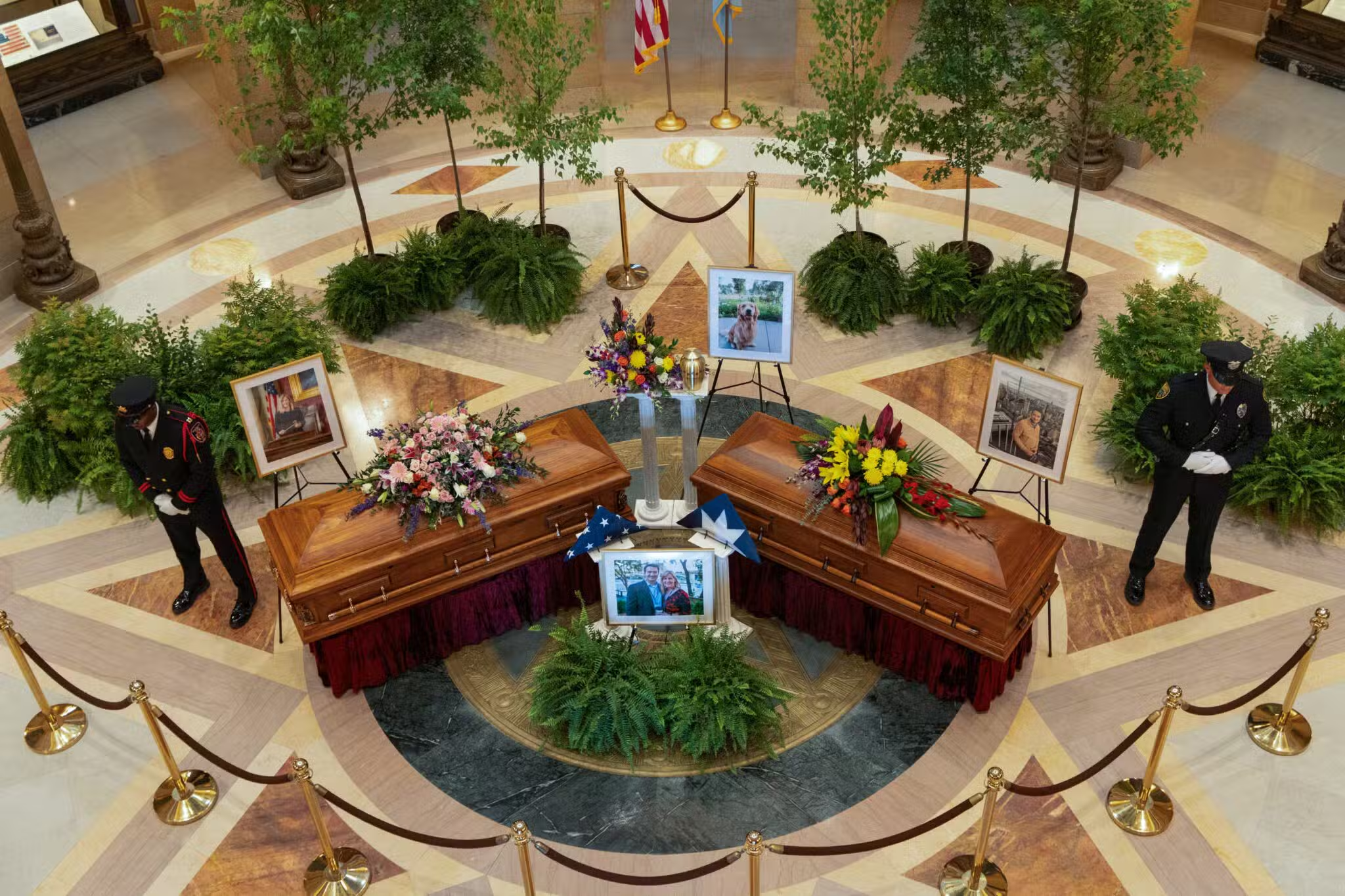SÃO PAULO (OSV News) — Church activists in the Amazon are worried about the Brazilian government’s plan to exploit oil in a marine area close to the mouth of the Amazon River.
Oil drilling, an issue discussed in different meetings over the past months by ecclesial movements and environmentalists, has been a problem in several regions of the Amazon.
While there was relevant progress recently in the struggle to restrain the oil companies’ operations in the rainforest, the pressure from those corporations is immense, and it will take too much effort from Catholics inspired by Pope Francis’ “Laudato Si'” encyclical to secure the protection of the common house their “common home” in the Amazon, activists say.
The project of exploiting oil about 300 miles northeast from Amazon River’s mouth has put top government officials on opposite sides: On one side is Environment Minister Marina Silva, who argues that technical studies showed that the operation would have a huge impact on the environment and local communities, and on the other is most of President Luiz Inácio Lula da Silva’s cabinet.
Lula is himself among the ones who think that it is possible to go on with the project without harming the environment. The plan was among the topics discussed by Lula and the presidents of the other nations of the Pan-Amazon region during an Aug. 8-9 summit in Belem, in Brazil. The region consists of nine countries: Brazil, Bolivia, Colombia, Ecuador, Peru, Venezuela, Suriname, Guyana and French Guyana.
“The summit’s final document failed to address key elements concerning extractivism in the Amazon. All decisions should be unanimous and there was no consensus on those issues,” explained Father Dario Bossi, a member of the Integral Ecology and Mining Commission of the bishops’ conference.
While Colombian President Gustavo Petro argued that oil drilling should be forbidden in the Amazon, the other leaders avoided discussing the issue.
Social movements and church groups had campaigned since January to gather as many members of the civil society as possible in parallel activities held during the summit. About 40,000 people gathered in Belém, according to Father Bossi, and were able to hand their demands to the presidents.
Although they were disappointed with the final document — not only due to the oil theme, but also due to the absence of a collective goal of reducing deforestation — the simple fact that they were there is a reason to celebrate, Father Bossi stressed. He said that parallel summits of the Amazonian social movements are being planned to happen in the next encounters.
Members of the Bishops’ Conference of the Amazon, which met for their general assembly earlier in August, also were disappointed with the Amazon summit. (Known by the acronym CEAMA, in Portuguese and Spanish, the conference was created in 2021.)
“The region’s governments are not trying to put an end to extractivism and look for economic alternatives,” Franciscan Sister Laura Manso, one of CEAMA’s vice presidents, told OSV News.
According to Sister Manso, social resistance to the “economy of destruction,” as she defined, has not always been enough to cancel extractivist endeavors, given that large companies, politicians, and even organized crime are behind them.
The assembly’s final message mentioned CEAMA’s repudiation to oil drilling in the Amazon’s mouth and in Yasuni National Park, in Ecuador. The continuity or not of oil exploitation in that reservation, considered to be among the most biodiverse in the Amazon, was submitted to a referendum Aug. 20. The majority of the Ecuadorians approved the end of oil exploitation in Yasuni.
“That victory is certainly an important symbol. But only a small portion of that area will now be free of oil drilling. In most of the Ecuadorian Amazon, mining and oil exploitation keep polluting the environment,” said Carlos Azcona, a Spanish-born lay missionary who works in the Aguarico vicariate, in the Orellana province.
Another referendum was promoted on the same day for the residents of Ecuador’s Quito region, called Pichincha, concerning mining. The voters also showed their repudiation to new projects.
“The harms caused by those extractivist operations cost more than the wealth they produce. People get sick and die as a result of them, but the governments do not care,” Azcona told OSV News.
The local bishops were very active in the campaign against oil drilling and mining, as were some groups of laypeople.
“Our hope is with those groups. They are small, but they will bear fruits,” Azcona said.
For Father Bossi, the repudiation of extractivism in the Amazon by the Ecuadorians should inspire all church and environmental activists in the region.
“It was historical. The people’s voice was heard and prevailed over the extractivism’s false promises. The governments always say that oil will bring wealth, but such wealth never gets to the poor,” the priest told OSV News.
Father Bossi said that if Lula approves oil exploitation in the Amazon, “his reputation as an international leader in the protection of nature will be disputed, and developed nations will not agree to negotiate with him instruments of environmental compensation.”
In June, Lula said rich nations need to pay for “historic environmental damage” done in developing nations. He made the comments at an event organized by a sustainable development advocacy group called Global Citizen that took place during the Paris Summit, where leaders of poor and rich countries discussed how to reach a financing pact to address consequences of climate change.
By Eduardo Campos Lima | OSV News







News & Commentary
Church environmentalists worried about oil drilling at mouth of Amazon River
SÃO PAULO (OSV News) — Church activists in the Amazon are worried about the Brazilian government’s plan to exploit oil in a marine area close to the mouth of the Amazon River.
Oil drilling, an issue discussed in different meetings over the past months by ecclesial movements and environmentalists, has been a problem in several regions of the Amazon.
While there was relevant progress recently in the struggle to restrain the oil companies’ operations in the rainforest, the pressure from those corporations is immense, and it will take too much effort from Catholics inspired by Pope Francis’ “Laudato Si'” encyclical to secure the protection of the common house their “common home” in the Amazon, activists say.
The project of exploiting oil about 300 miles northeast from Amazon River’s mouth has put top government officials on opposite sides: On one side is Environment Minister Marina Silva, who argues that technical studies showed that the operation would have a huge impact on the environment and local communities, and on the other is most of President Luiz Inácio Lula da Silva’s cabinet.
Lula is himself among the ones who think that it is possible to go on with the project without harming the environment. The plan was among the topics discussed by Lula and the presidents of the other nations of the Pan-Amazon region during an Aug. 8-9 summit in Belem, in Brazil. The region consists of nine countries: Brazil, Bolivia, Colombia, Ecuador, Peru, Venezuela, Suriname, Guyana and French Guyana.
“The summit’s final document failed to address key elements concerning extractivism in the Amazon. All decisions should be unanimous and there was no consensus on those issues,” explained Father Dario Bossi, a member of the Integral Ecology and Mining Commission of the bishops’ conference.
While Colombian President Gustavo Petro argued that oil drilling should be forbidden in the Amazon, the other leaders avoided discussing the issue.
Social movements and church groups had campaigned since January to gather as many members of the civil society as possible in parallel activities held during the summit. About 40,000 people gathered in Belém, according to Father Bossi, and were able to hand their demands to the presidents.
Although they were disappointed with the final document — not only due to the oil theme, but also due to the absence of a collective goal of reducing deforestation — the simple fact that they were there is a reason to celebrate, Father Bossi stressed. He said that parallel summits of the Amazonian social movements are being planned to happen in the next encounters.
Members of the Bishops’ Conference of the Amazon, which met for their general assembly earlier in August, also were disappointed with the Amazon summit. (Known by the acronym CEAMA, in Portuguese and Spanish, the conference was created in 2021.)
“The region’s governments are not trying to put an end to extractivism and look for economic alternatives,” Franciscan Sister Laura Manso, one of CEAMA’s vice presidents, told OSV News.
According to Sister Manso, social resistance to the “economy of destruction,” as she defined, has not always been enough to cancel extractivist endeavors, given that large companies, politicians, and even organized crime are behind them.
The assembly’s final message mentioned CEAMA’s repudiation to oil drilling in the Amazon’s mouth and in Yasuni National Park, in Ecuador. The continuity or not of oil exploitation in that reservation, considered to be among the most biodiverse in the Amazon, was submitted to a referendum Aug. 20. The majority of the Ecuadorians approved the end of oil exploitation in Yasuni.
“That victory is certainly an important symbol. But only a small portion of that area will now be free of oil drilling. In most of the Ecuadorian Amazon, mining and oil exploitation keep polluting the environment,” said Carlos Azcona, a Spanish-born lay missionary who works in the Aguarico vicariate, in the Orellana province.
Another referendum was promoted on the same day for the residents of Ecuador’s Quito region, called Pichincha, concerning mining. The voters also showed their repudiation to new projects.
“The harms caused by those extractivist operations cost more than the wealth they produce. People get sick and die as a result of them, but the governments do not care,” Azcona told OSV News.
The local bishops were very active in the campaign against oil drilling and mining, as were some groups of laypeople.
“Our hope is with those groups. They are small, but they will bear fruits,” Azcona said.
For Father Bossi, the repudiation of extractivism in the Amazon by the Ecuadorians should inspire all church and environmental activists in the region.
“It was historical. The people’s voice was heard and prevailed over the extractivism’s false promises. The governments always say that oil will bring wealth, but such wealth never gets to the poor,” the priest told OSV News.
Father Bossi said that if Lula approves oil exploitation in the Amazon, “his reputation as an international leader in the protection of nature will be disputed, and developed nations will not agree to negotiate with him instruments of environmental compensation.”
In June, Lula said rich nations need to pay for “historic environmental damage” done in developing nations. He made the comments at an event organized by a sustainable development advocacy group called Global Citizen that took place during the Paris Summit, where leaders of poor and rich countries discussed how to reach a financing pact to address consequences of climate change.
By Eduardo Campos Lima | OSV News